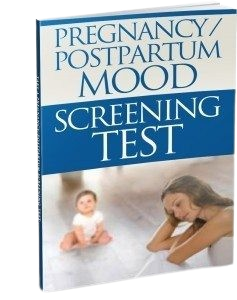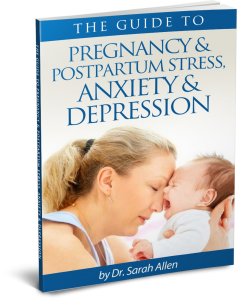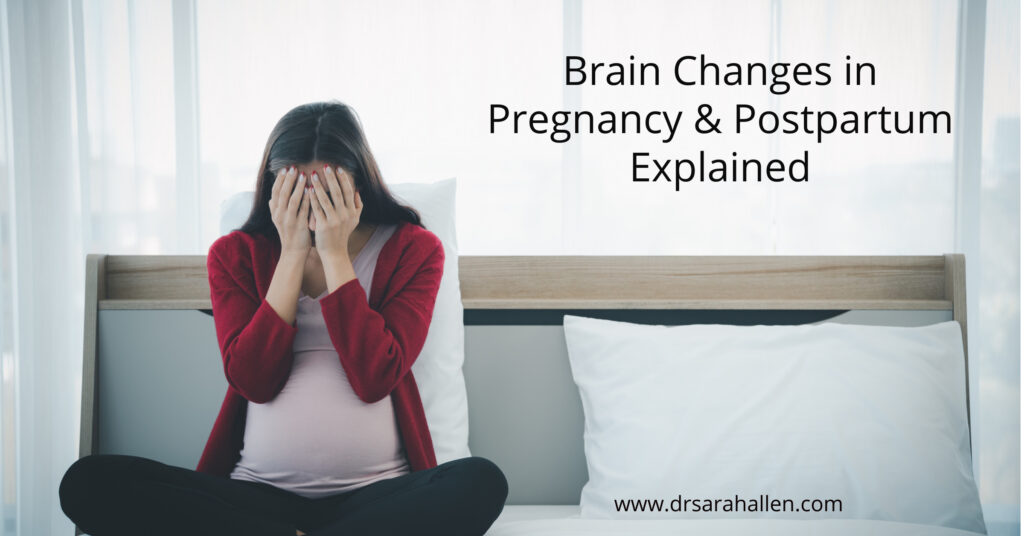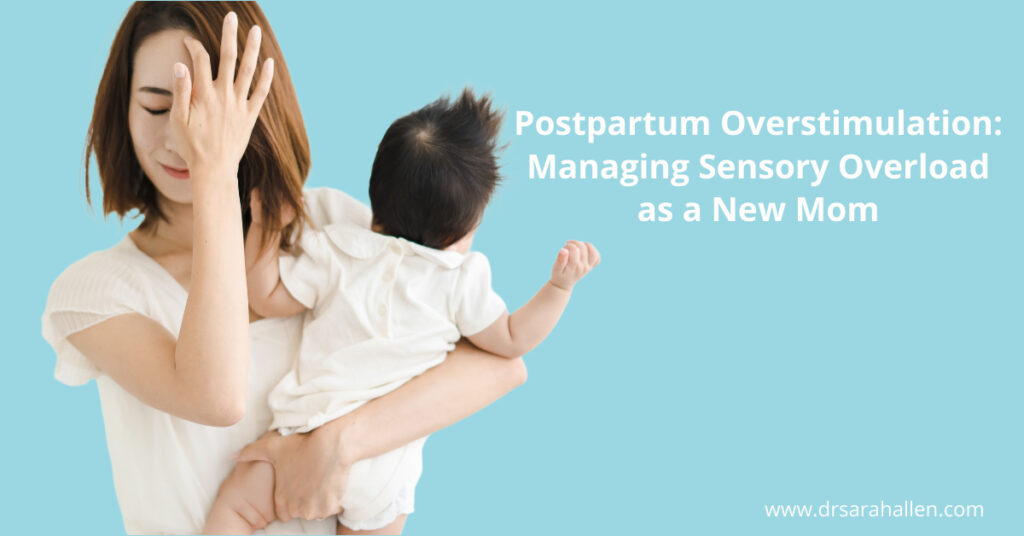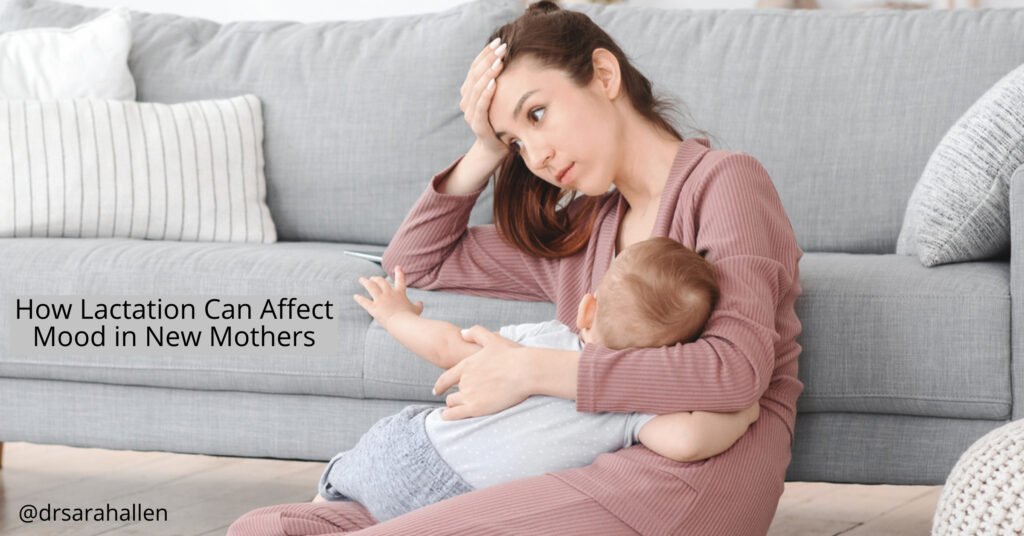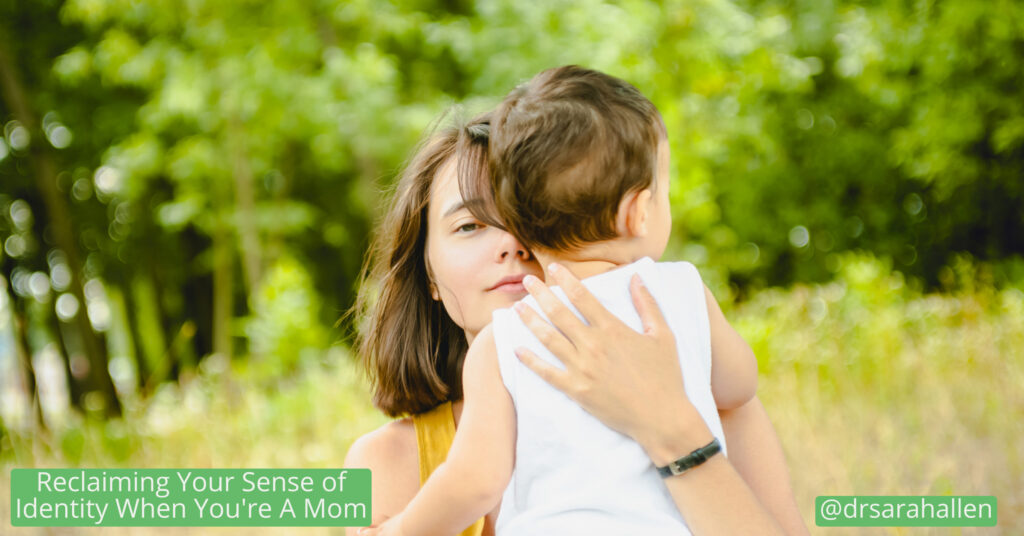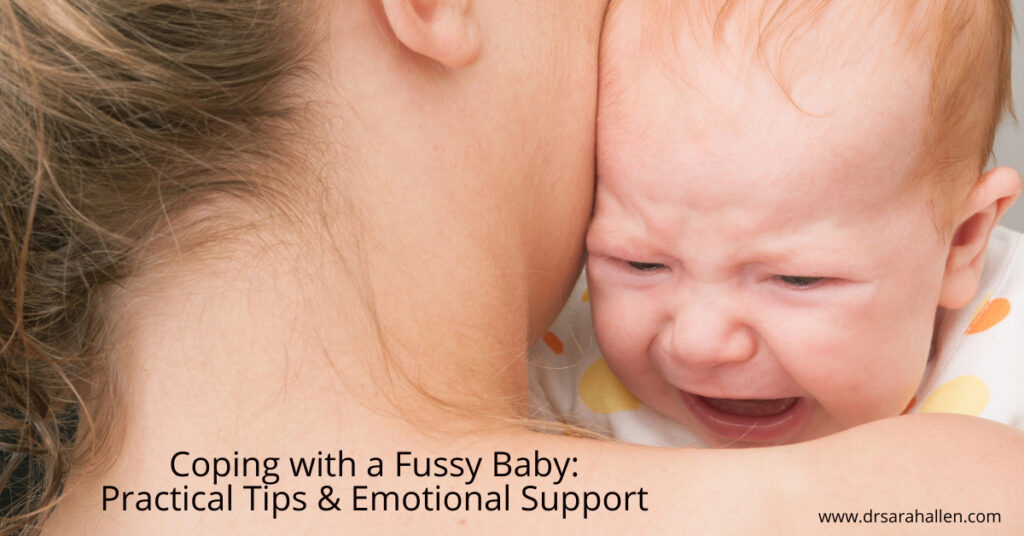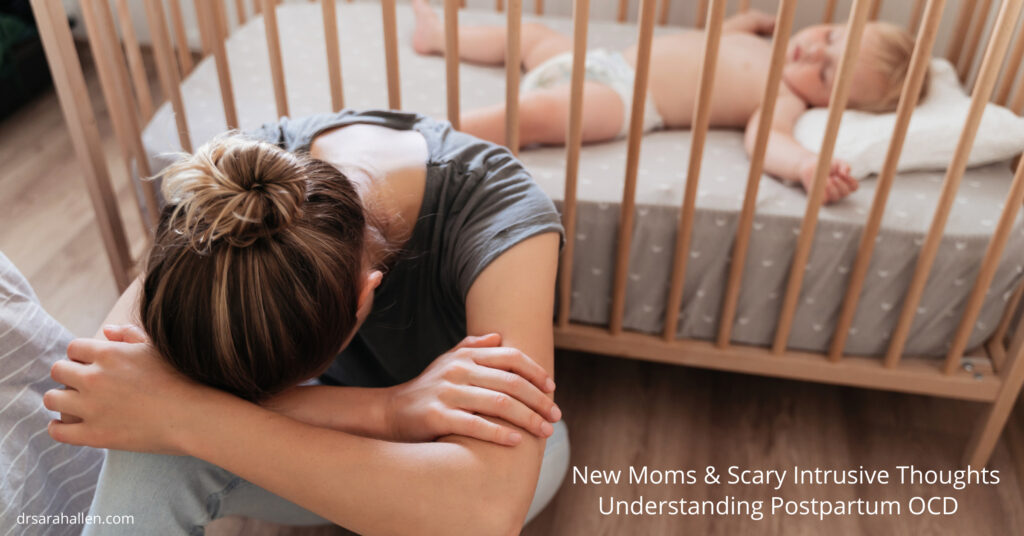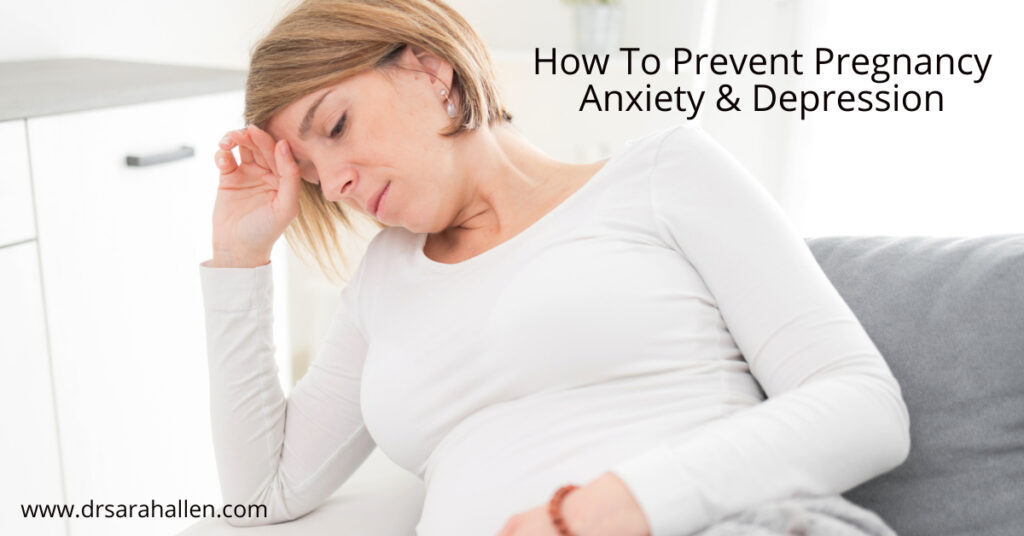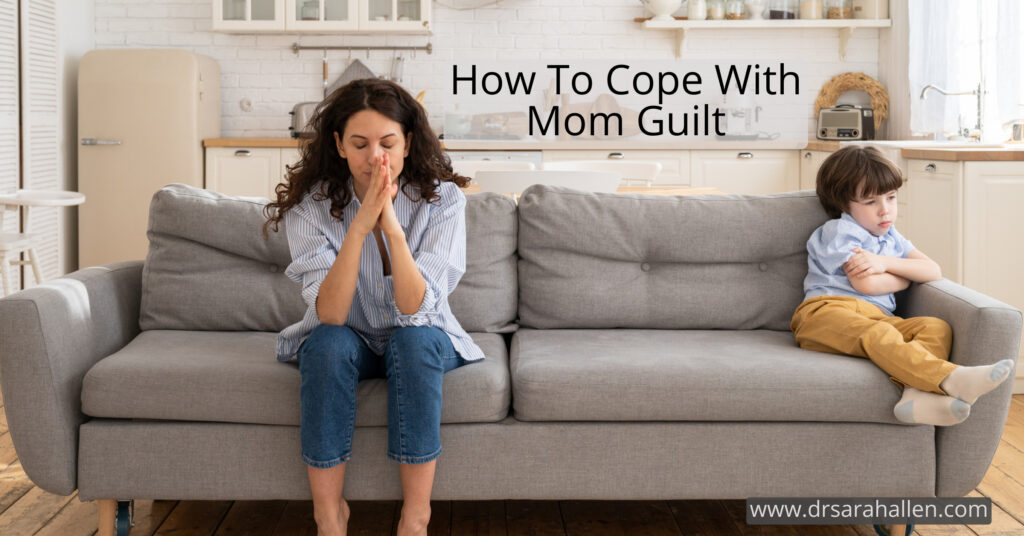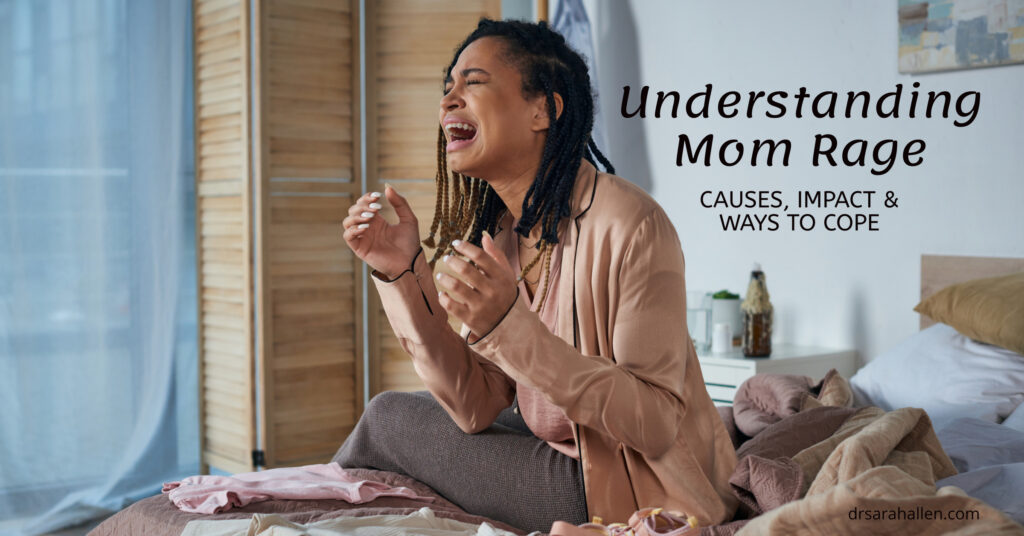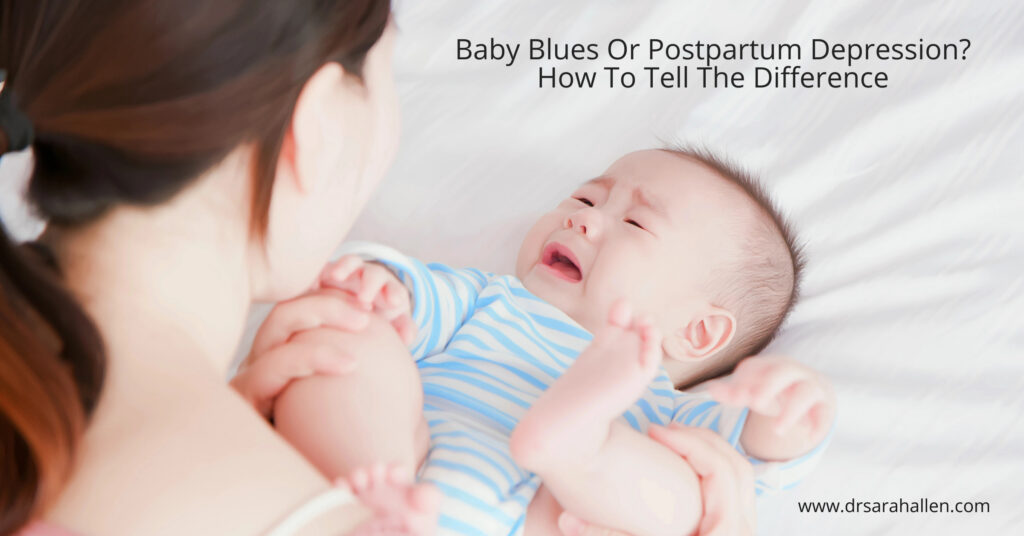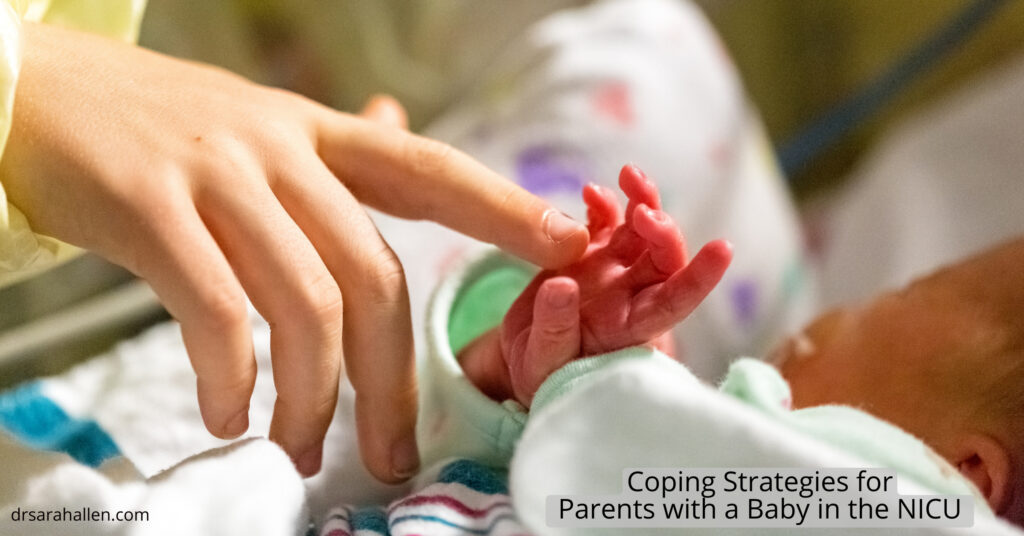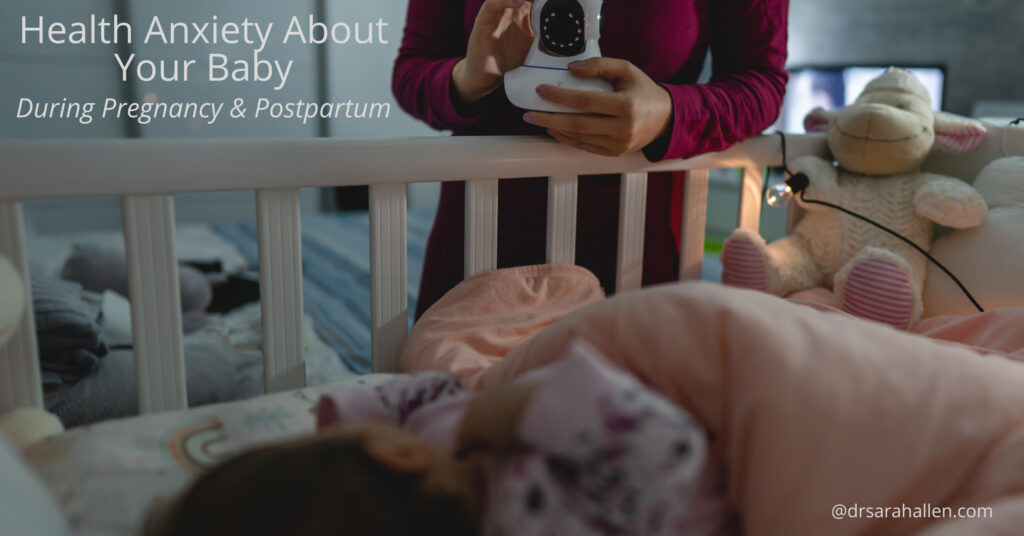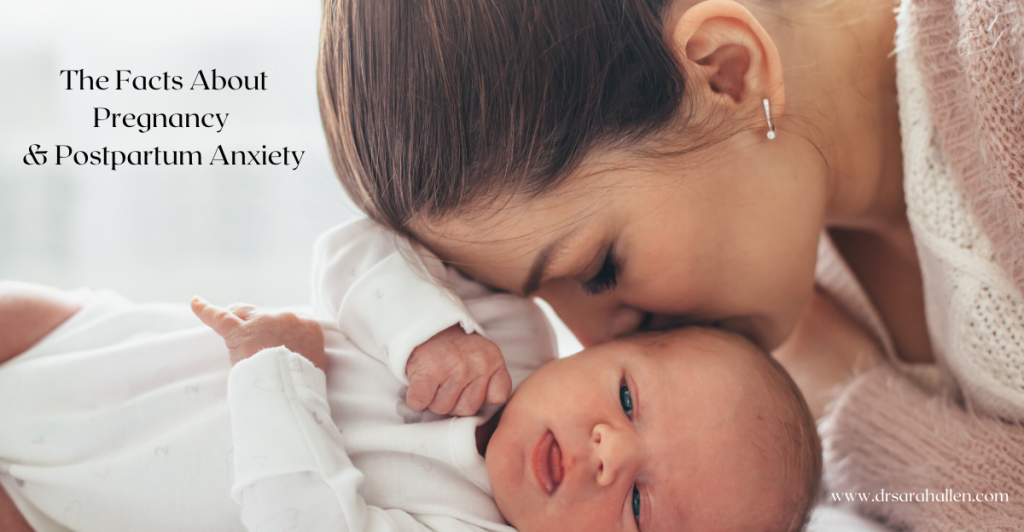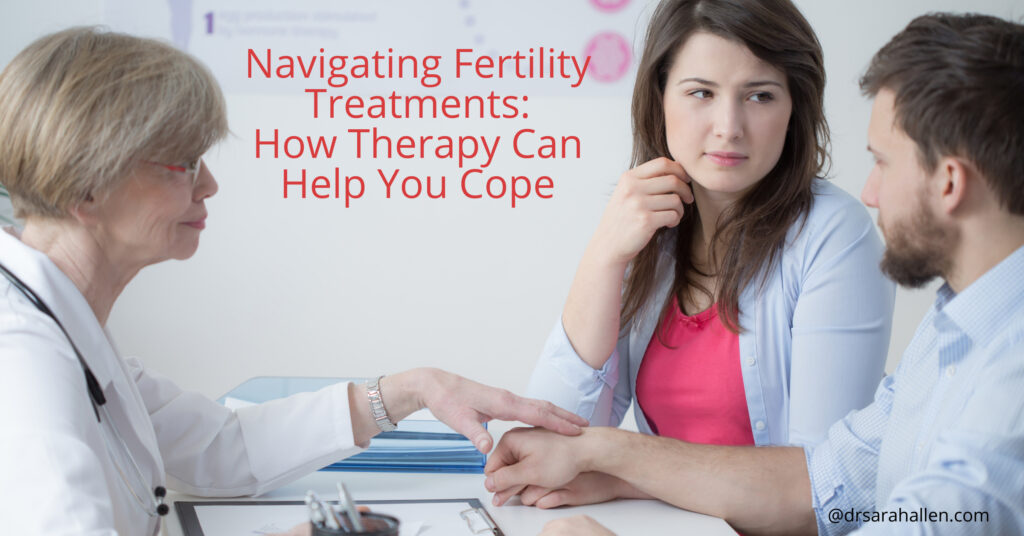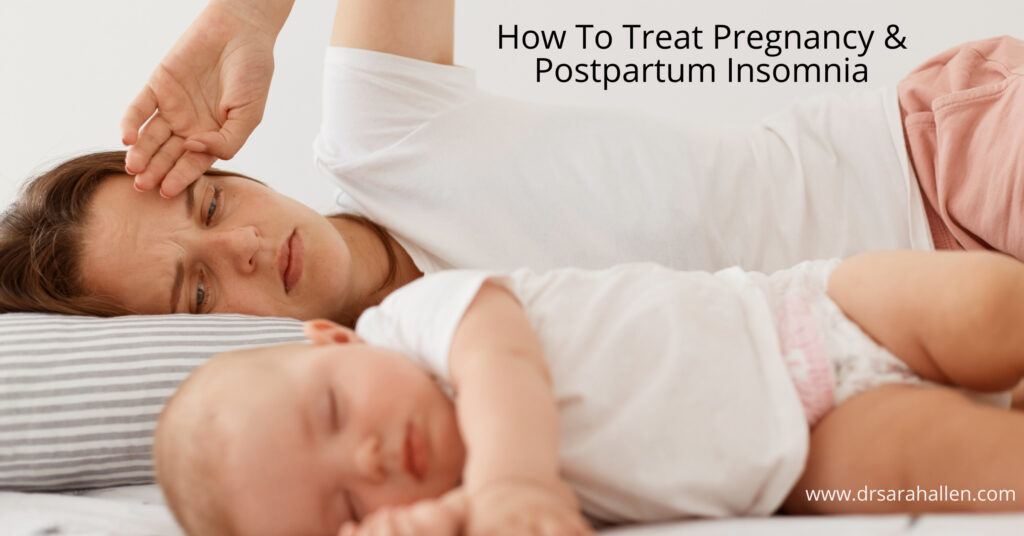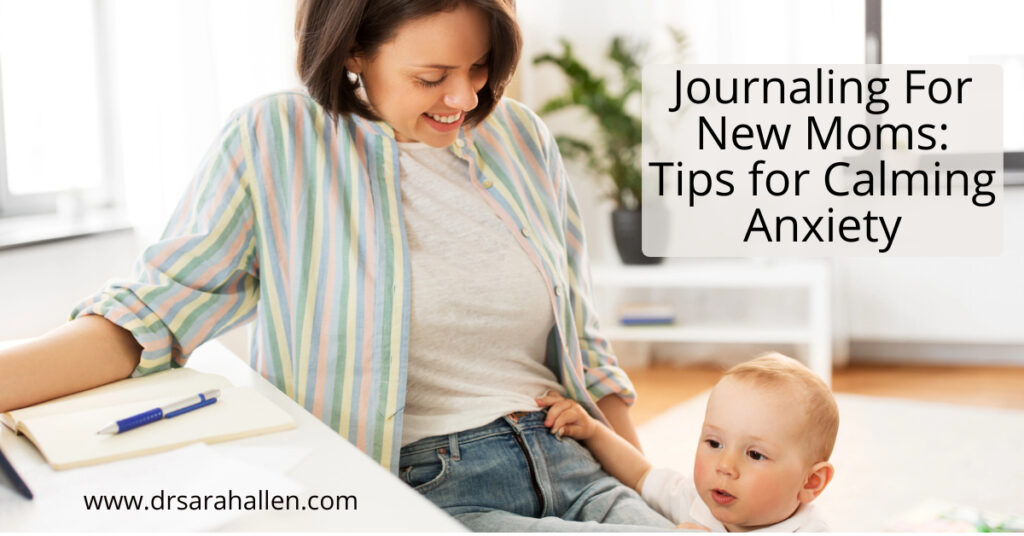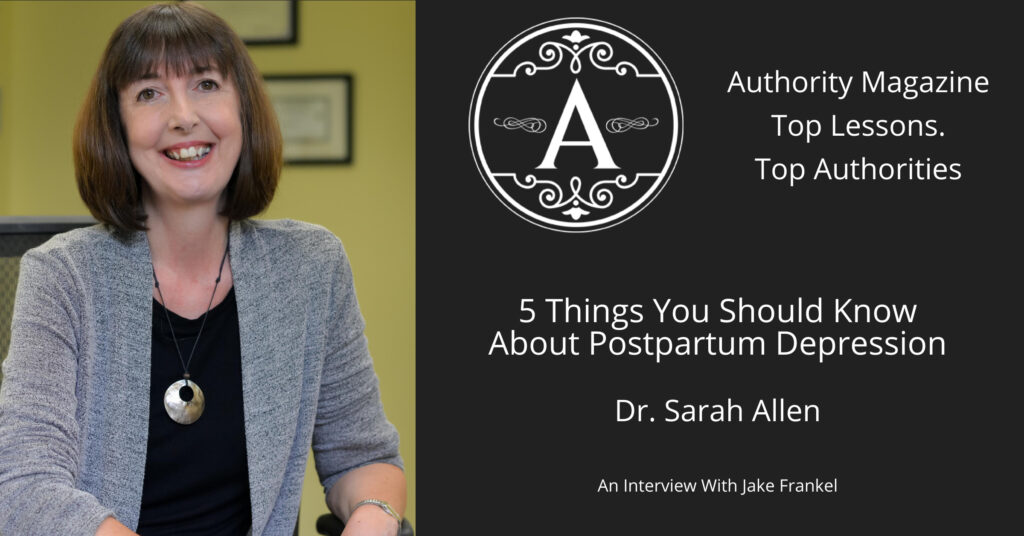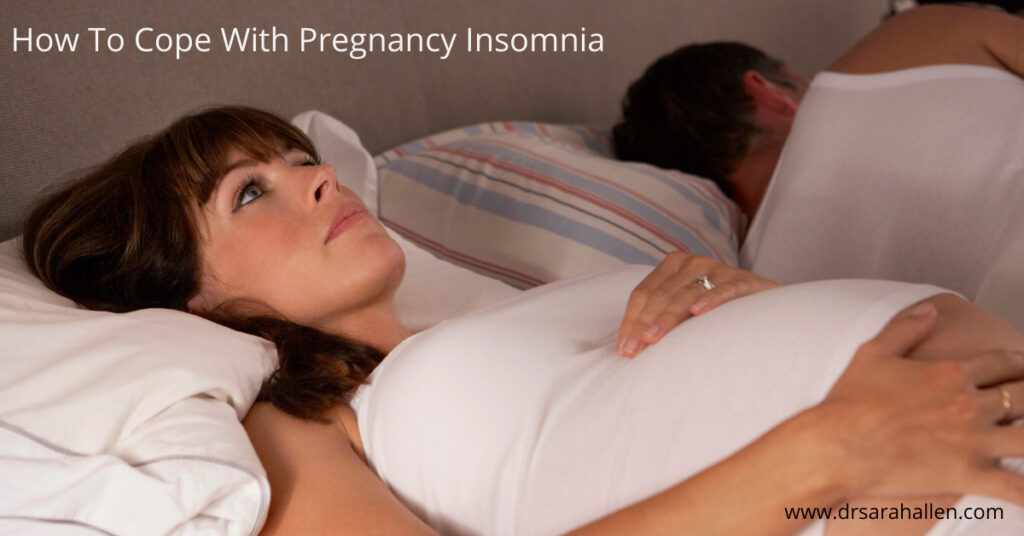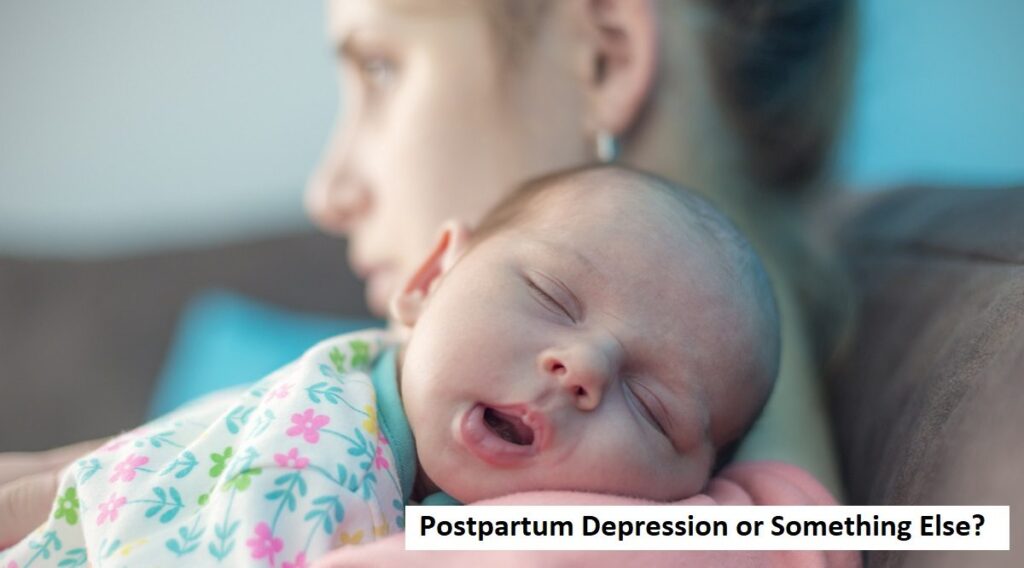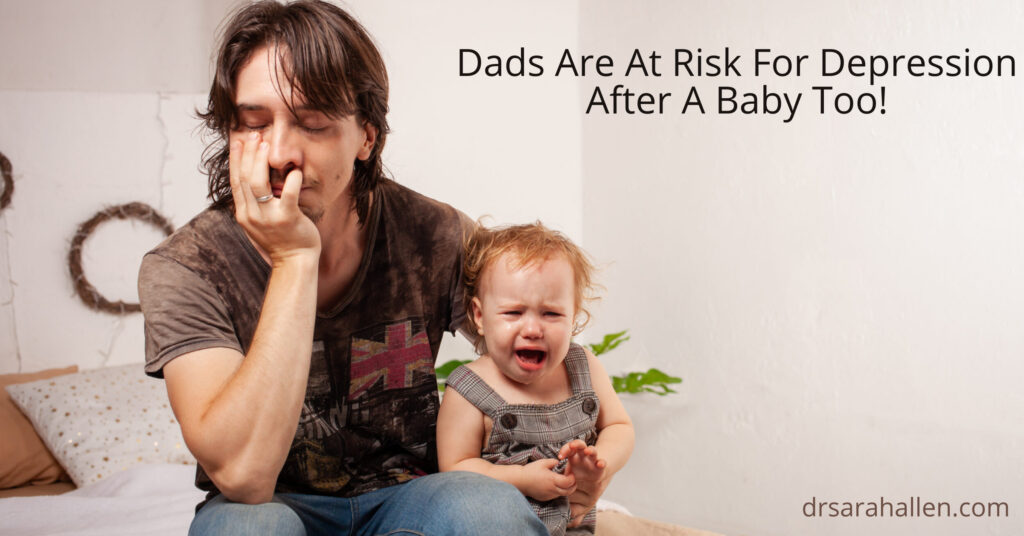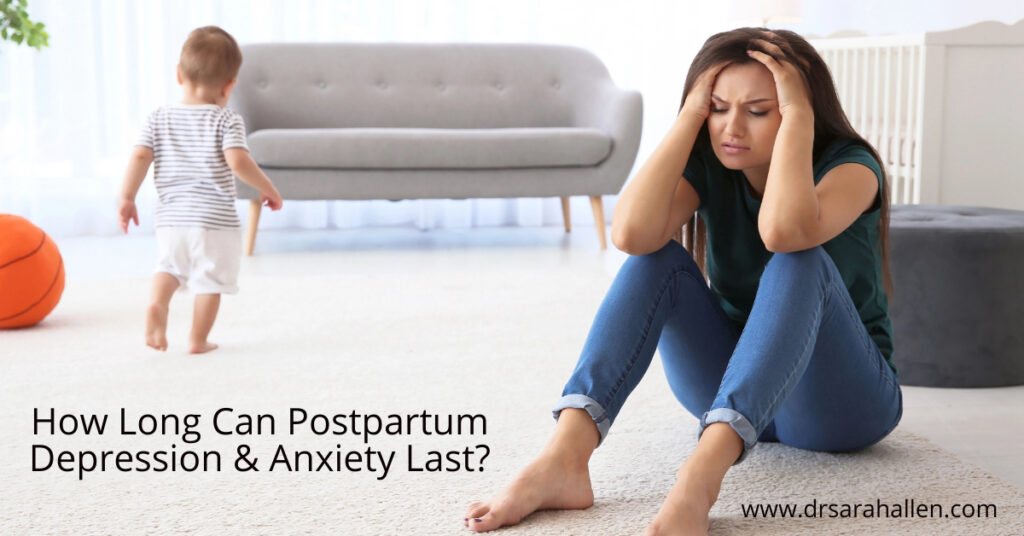
I am frequently asked how long after having a baby can symptoms of Postpartum Depression (PPD) and/or Postpartum Anxiety (PPA) begin and how long can they last? Typically PPD & PPA are diagnosed if symptoms occur anytime in the first year after birth. Depression and anxiety can also occur during pregnancy. All can significantly affect your mental health and left untreated, they can last far longer than the first year postpartum.
It really is crucial to understand that you are not alone, and these conditions are more common than you might think. Below I delve deeper to understand more about pregnancy and postpartum mood disorders; symptoms, when they can begin, what are risk factors, how long they can last and how to get effective treatment.
Identifying symptoms early can help you receive the right support and treatment, but sometimes, symptoms don’t appear immediately after birth, making them harder to identify. If you are experiencing symptoms months after having a baby, it is never too late to get help.
What if your baby is 13 months (or older) and you are feeling anxious or depressed? Your symptoms can still be related to the overwhelming nature of motherhood. The stress as you try to balance the many aspects of life as a mother, health issues, work demands and relationship difficulties. Even though the technical diagnosis many not be postpartum depression or anxiety, it is still important to get help and support. You don’t have to feel this way and help is available.
“Pregnancy and postpartum mood disorders are very treatable and with the right help, you can feel better!” Dr. Sarah Allen, maternal mental health specialist.
What Is Pregnancy and Postpartum Depression?
Pregnancy and Postpartum Depression are characterized by persistent feelings of sadness, emptiness, or a lack of interest in activities that once brought you positive feelings.
Common Symptoms of Pregnancy & Postpartum Depression:
- Persistent sadness or hopelessness
- Fatigue and lack of energy
- Loss of interest in hobbies or activities
- Difficulty bonding with the baby
- Insomnia or excessive sleeping
- Changes in appetite (eating too much or too little)
- Irritability or anger
- Thoughts of self-harm or harming the baby (in severe cases)
PPD is thought to stem from a combination of hormonal changes, sleep deprivation, emotional stress, and, for some, a history of depression or trauma.
Emotional Core:
PPD often feels like being “stuck” in a heavy cloud of hopelessness and disconnection, impacting your ability to find joy or feel close to loved ones—including your baby.
What Is Pregnancy and Postpartum Anxiety?
Pregnancy and Postpartum Anxiety is marked by excessive, uncontrollable worry or fear, often centered around the baby’s well-being, the birthing process, or parenting in general. Unlike PPD, anxiety doesn’t always include feelings of sadness; instead, it’s dominated by an overwhelming sense of dread.
Common Symptoms of PPA:
- Constant worrying or racing thoughts
- Intrusive thoughts (distressing or repetitive thoughts that feel impossible to ignore)
- Physical symptoms like a racing heart, shortness of breath, or nausea
- Trouble sleeping, even when exhausted
- Avoidance of certain situations (e.g., leaving the house or letting others hold the baby)
- Feeling on edge or hypervigilant (always on “high alert”)
PPA often flies under the radar because some amount of worry is considered “normal” for new or expecting parents. However, when that worry becomes all-consuming, it’s important to seek help.
Emotional Core:
PPA feels like a relentless cycle of fear and “what ifs,” leaving you exhausted yet unable to relax or feel at ease.
Key Differences Between PPD and PPA
| Feature | Pregnancy/Postpartum Depression (PPD) | Pregnancy/Postpartum Anxiety (PPA) |
|---|---|---|
| Primary Emotion | Sadness, hopelessness | Constant worry, fear |
| Dominant Symptoms | Low mood, lack of interest, fatigue | Excessive worry, physical tension |
| Physical Symptoms | Changes in sleep/appetite, low energy | Racing heart, nausea, shortness of breath |
| Thought Patterns | Feelings of worthlessness or guilt | Intrusive or racing thoughts, “what ifs” |
| Bonding with Baby | Difficulty bonding with baby | Overwhelming fear of harm to baby |
Can You Have Both PPD & PPA?
Absolutely. Many individuals experience a combination of depressive and anxious symptoms during pregnancy or postpartum. For example, a parent might feel fatigued and disconnected (hallmarks of PPD) but also spend hours worrying about their baby’s sleep and health (hallmarks of PPA). This overlap underscores the importance of seeking a professional diagnosis to address all concerns effectively.
Factors Influencing the Duration and Onset of PPD and PPA
Common Factors That Influence PPD and PPA
Various factors can influence the duration and onset of Postpartum Depression and Postpartum Anxiety. Hormonal changes after childbirth are a significant factor. The sudden drop in estrogen and progesterone levels can affect your mood. Personal history also plays a role. If you have a history of depression or anxiety, you might be more susceptible to PPD or PPA.
Other factors include lack of support from family and friends, high-stress levels, and major life changes. Sleep deprivation, common among new parents, can also worsen symptoms.
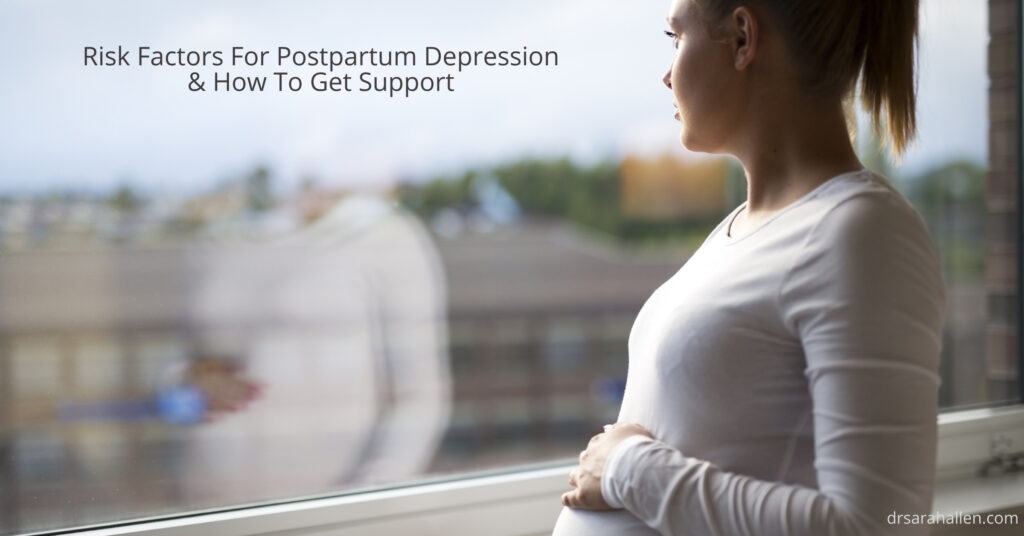
To learn more about risk factors read Risk Factors For Postpartum Depression & How To Get Support
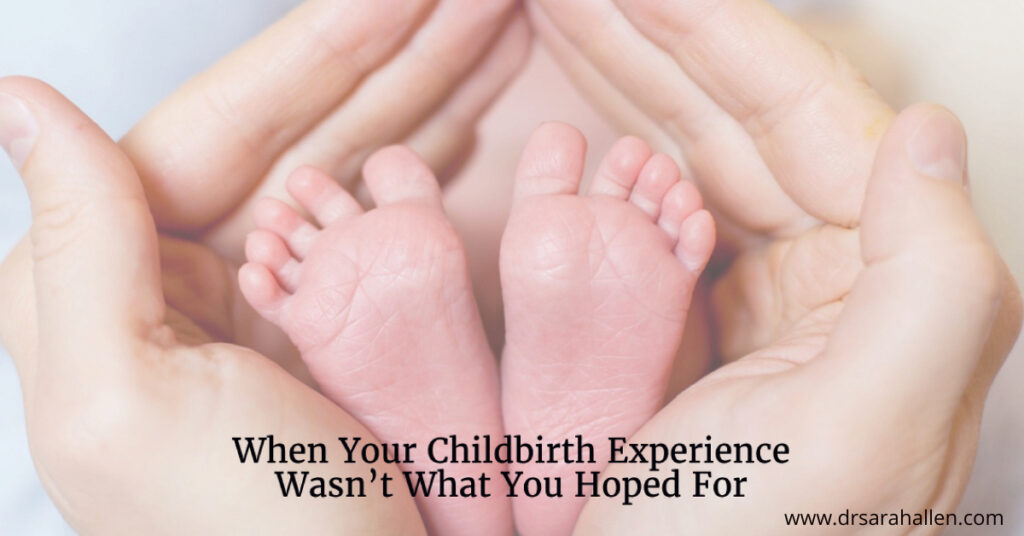
A difficult childbirth experience can be a factor in developing PPD & PPD When Your Childbirth Experience Wasn’t What You Hoped For
Delayed Onset: Understanding Late-Appearing Symptoms
PPD and PPA don’t always appear immediately after childbirth. Sometimes, symptoms can develop weeks or even months later. This delayed onset can make it harder to identify and understand what’s happening. If symptoms appear later, you might not connect them to the birth, making it challenging to seek the right help.
Delayed onset of PPD and PPA can be influenced by prolonged stress, ongoing lack of sleep, or an overwhelming feeling of responsibility for caring for a new baby. Being aware that these conditions can develop later is important as it is never too late to seek help.
Consequences of Untreated PPD and PPA
Possible Impact On Mothers
Untreated PPD and PPA has the potential to have serious consequences for the mother. Ongoing depression can lead to chronic sadness, overwhelming fatigue, and feelings of worthlessness. These symptoms can make it hard to care for yourself and your baby. You may lose interest in daily activities, leading to poor nutrition and neglect of personal health.
Anxiety can be equally crippling. Constant worry and fear can prevent you from enjoying time with your child. You might find yourself avoiding social situations and missing out on support from friends and family. The mental strain can also affect your physical health, leading to headaches, stomach problems, and other stress-related conditions.
Possible Effects on Family and Partners
The effects of untreated PPD and PPA extend beyond the mother. Partners and families often feel the impact too. Communication may break down as the mother struggles with her emotions. This can cause tension and misunderstandings in the relationship. Partners might feel helpless or frustrated, not knowing how to provide the right support.
Children can also be affected. Infants may sense the mother’s distress, making them fussy or hard to soothe. Older children might feel confused or neglected. The entire family dynamic can suffer, making it harder for everyone to cope and thrive. Recognizing these impacts highlights the importance of early intervention and support.
If you feel that your partner may also be experiencing depression read and share Dads Are At Risk For Depression After A Baby Too!
Duration of Pregnancy Or Postpartum Depression and Anxiety
The duration of pregnancy or postpartum depression and anxiety varies widely depending on the individual, the severity of symptoms, and whether treatment is sought. Here’s what to consider:
Without Treatment
If left untreated, PPD and anxiety can last for months or even years. For some, symptoms may gradually lessen over time, but for others, the struggle may persist or worsen.
Untreated depression can spiral into more intense mental health issues, including thoughts of self-harm or suicide. Anxiety might evolve into panic disorders or obsessive-compulsive behaviors. These conditions make daily functioning challenging and can have long-lasting effects.
Without proper treatment, your own quality of life and that of your family can be affected. Relationships can become strained or even break under the pressure.
With Treatment
With timely and appropriate treatment, many women notice significant improvement within weeks to months. Therapy, medication, support groups, or a combination of these can be highly effective in reducing symptoms.
Recovery Is Not Linear
It’s also essential to understand that recovery is not the same for everyone. Healing may include ups and downs, good and bad days, but with perseverance and support, the majority of people do recover and thrive.
Effective Treatment for PPD and PPA
There are various effective treatments for PPD and PPA. Therapy is a common and successful method. Cognitive-behavioral therapy (CBT) can help you change negative thought patterns and behaviors. Talking to a postpartum therapist who specializes in maternal mental health can provide the tools you need to manage your symptoms.
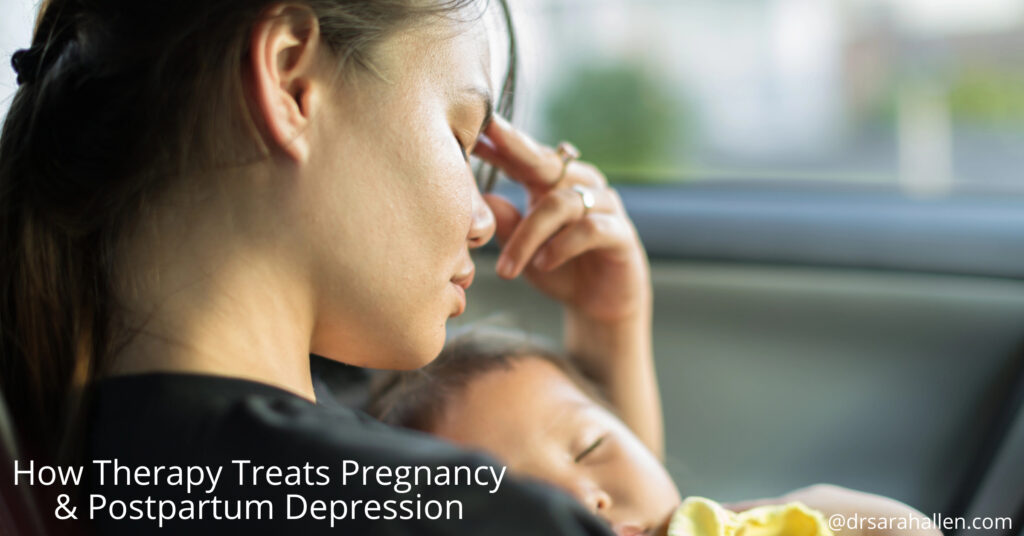
For more in depth information read How Therapy Treats Pregnancy & Postpartum Depression
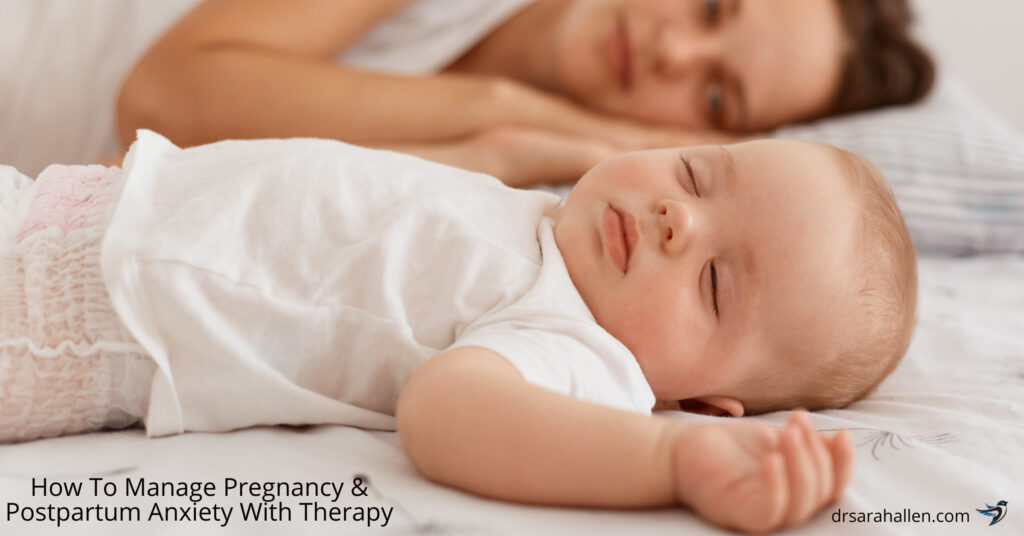
For managing anxiety read How To Manage Pregnancy & Postpartum Anxiety With Therapy
Medication can also be helpful. Antidepressants and anti-anxiety medications prescribed by a healthcare provider can provide relief. It’s important to discuss the benefits and risks with your doctor to find the right treatment plan for you. We can work as a team. If you would like me to, I can communicate with your doctor about any medication they prescribe. Support groups can also offer a space to share experiences and gain insights from others facing similar challenges.
When Should You Seek Help?
If you’ve been feeling persistently down, anxious, or overwhelmed for more than two weeks, or if these feelings are making it difficult for you to care for yourself or your baby, it’s time to reach out for support. Seeking help is a sign of strength—not failure.
Don’t hesitate to reach out when you need it; support is available and can make a huge difference in your recovery journey.
Consider reaching out to:
- Your healthcare provider (OB-GYN or family doctor)
- A therapist, like myself, who has specialist training in postpartum mental health and extensive experience treating maternal mental health issues. Many therapists may claim to specialize in this area. It is always okay to ask to speak with them before making an appointment and ask about their training and how many women they have worked with how are experiencing similar issues to yourself.
- Postpartum support organizations like the Postpartum Depression Alliance of IL
There is no “wrong time” to seek help, even if you’ve been feeling this way for months or longer. I am here to help and you are not alone in feeling the way you do at the moment.
Take the First Step
Postpartum or pregnancy depression and anxiety do not define you, and they are treatable. Whether you’re experiencing your first few weeks of symptoms or have been struggling for a longer period, accessing the right resources can help you find relief and reclaim the joy of motherhood.
Your well-being matters, and you don’t have to go through this alone. The start and duration of PPD and PPA varies considerably among individuals. For some women I have worked with, just a few sessions to manage the transition is all they need. For others, especially women who have had previous mood disorders or trauma, a longer duration of treatment is necessary. Without appropriate treatment though, these conditions can persist for months, and in some cases, even years, potentially evolving into a chronic condition.
If you are experiencing pregnancy or postpartum mood changes, I am here to help. Please reach out to me below. If you don’t live in Illinois, Florida or the UK, I have many articles that are relevant to new parents as well as a free downloadable booklet that are a good starting point while you find local resources.

Dr. Sarah Allen has 25+ years of experience in private practice helping women to transition to being the mom they want to be. She is the Founding Director of the statewide non-profit Postpartum Depression Alliance of IL. She also specializes in pregnancy loss & infertility & has published research on postpartum depression and traumatic childbirth.
If you would like to work with Sarah, please phone her at 847 791-7722 or on the form below.
If you would like to read more about me and my areas of specialty, please visit Dr. Sarah Allen Bio. Dr. Allen’s professional license only allows her to work with clients who live in IL & FL & the UK and unfortunately does not allow her to give personalized advice via email to people who are not her clients.
Dr. Allen sees clients in person in her Northbrook, IL office or remotely via video or phone.

What Can I Read That Helps Me While I Am Waiting For My First Appointment With Sarah?
If you feel that you may be experiencing pregnancy or postpartum mood disorder, or worry that you may be at risk of developing it, please download my free booklets below.
See each specific webpage to download one or many.
